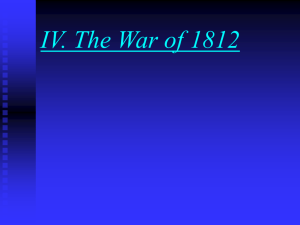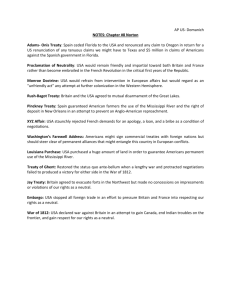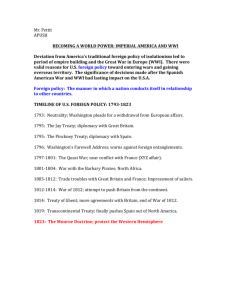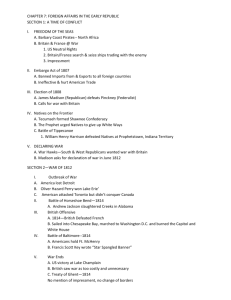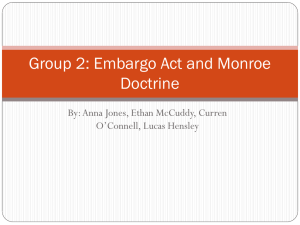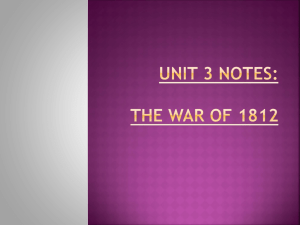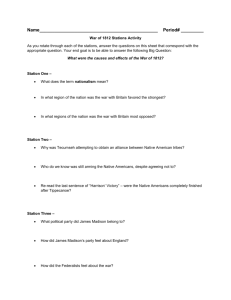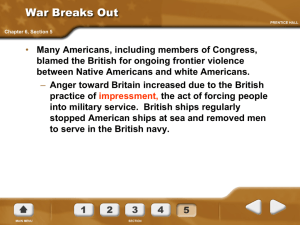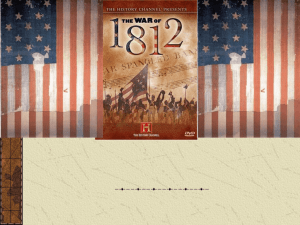War of 1812
advertisement
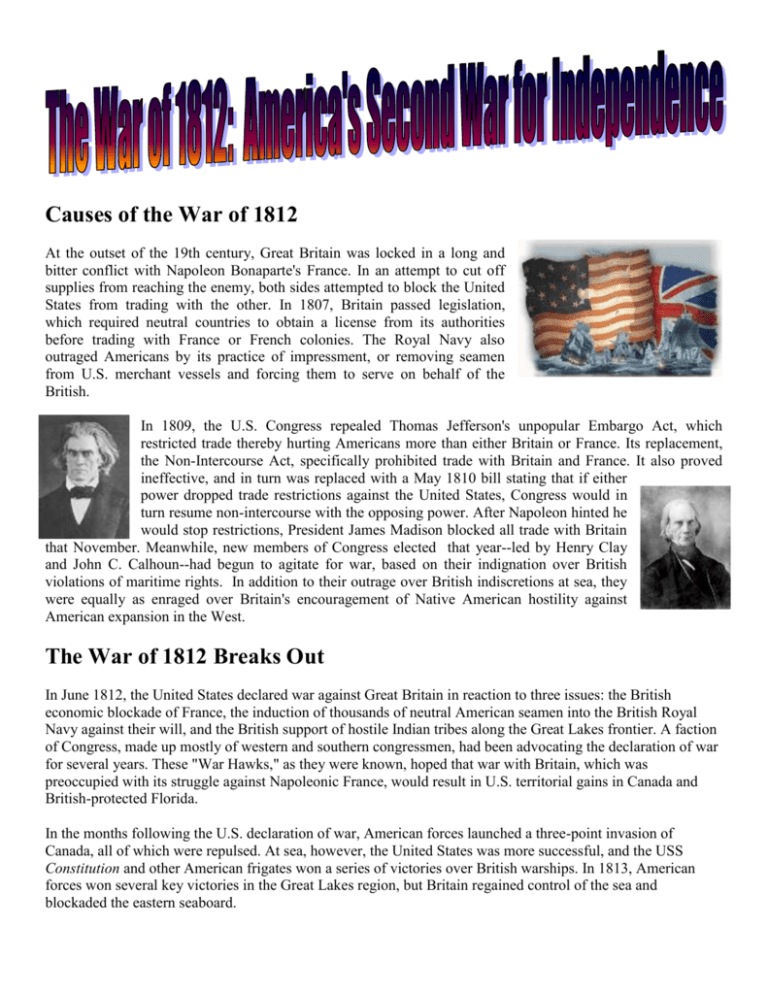
Causes of the War of 1812 At the outset of the 19th century, Great Britain was locked in a long and bitter conflict with Napoleon Bonaparte's France. In an attempt to cut off supplies from reaching the enemy, both sides attempted to block the United States from trading with the other. In 1807, Britain passed legislation, which required neutral countries to obtain a license from its authorities before trading with France or French colonies. The Royal Navy also outraged Americans by its practice of impressment, or removing seamen from U.S. merchant vessels and forcing them to serve on behalf of the British. In 1809, the U.S. Congress repealed Thomas Jefferson's unpopular Embargo Act, which restricted trade thereby hurting Americans more than either Britain or France. Its replacement, the Non-Intercourse Act, specifically prohibited trade with Britain and France. It also proved ineffective, and in turn was replaced with a May 1810 bill stating that if either power dropped trade restrictions against the United States, Congress would in turn resume non-intercourse with the opposing power. After Napoleon hinted he would stop restrictions, President James Madison blocked all trade with Britain that November. Meanwhile, new members of Congress elected that year--led by Henry Clay and John C. Calhoun--had begun to agitate for war, based on their indignation over British violations of maritime rights. In addition to their outrage over British indiscretions at sea, they were equally as enraged over Britain's encouragement of Native American hostility against American expansion in the West. The War of 1812 Breaks Out In June 1812, the United States declared war against Great Britain in reaction to three issues: the British economic blockade of France, the induction of thousands of neutral American seamen into the British Royal Navy against their will, and the British support of hostile Indian tribes along the Great Lakes frontier. A faction of Congress, made up mostly of western and southern congressmen, had been advocating the declaration of war for several years. These "War Hawks," as they were known, hoped that war with Britain, which was preoccupied with its struggle against Napoleonic France, would result in U.S. territorial gains in Canada and British-protected Florida. In the months following the U.S. declaration of war, American forces launched a three-point invasion of Canada, all of which were repulsed. At sea, however, the United States was more successful, and the USS Constitution and other American frigates won a series of victories over British warships. In 1813, American forces won several key victories in the Great Lakes region, but Britain regained control of the sea and blockaded the eastern seaboard. In 1814, with the downfall of Napoleon, the British were able to allocate more military resources to the American war, and Washington, D.C., fell to the British in August. In Washington, British troops burned the White House, the Capitol, and other buildings in retaliation for the earlier burning of government buildings in Canada by U.S. soldiers. The British soon retreated, however, and Fort McHenry in Baltimore harbor withstood a massive British bombardment and inspired Francis Scott Key to pen the "Star-Spangled Banner." On September 11, 1814, the tide of the war turned when Thomas Macdonough's American naval force won a decisive victory at the Battle of Plattsburg Bay on Lake Champlain. A large British army under Sir George Prevost was thus forced to abandon its invasion of the U.S. northeast and retreat to Canada. The American victory on Lake Champlain led to the conclusion of U.S.-British peace negotiations in Belgium, and on December 24, 1814, the Treaty of Ghent was signed, ending the war. Although the treaty said nothing about two of the key issues that started the war--the rights of neutral U.S. vessels and the impressment of U.S. sailors--it did open up the Great Lakes region to American expansion and was hailed as a diplomatic victory in the United States. News of the treaty took almost two months to cross the Atlantic, and British forces were not informed of the end of hostilities in time to end their drive against the mouth of the Mississippi River. On January 8, 1815, a large British army attacked New Orleans and was decimated by an inferior American force under General Andrew Jackson in the most spectacular U.S. victory of the war. The American public heard of the Battle of New Orleans and the Treaty of Ghent at approximately the same time, fostering a greater sentiment of self-confidence and shared identity throughout the young republic. Please answer the following questions after reading the summary of the War of 1812 1. What was the purpose of both the Embargo Act and the Non-Intercourse Act? 2. Summarizes the causes of the War of 1812 – why did we declare war on Great Britain? 3. Who were the “War Hawks” and what did they hope for? 4. What occurred in 1814 that was retaliation for American actions in Canada? 5. What treaty ended the War of 1812? 6. Before news of a peace treaty reached the US, what major battle took place? Who was the general in charge of US forces?
